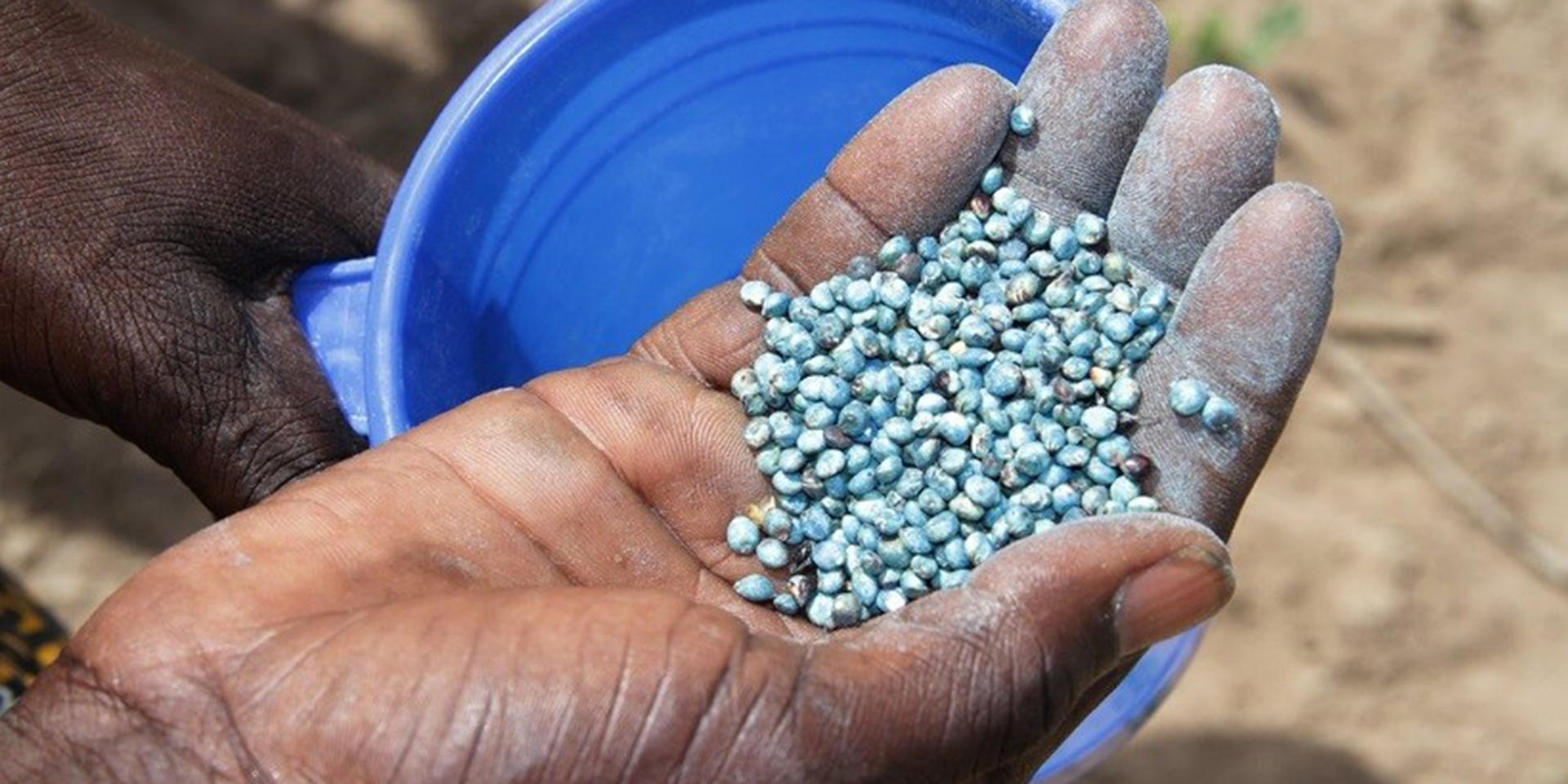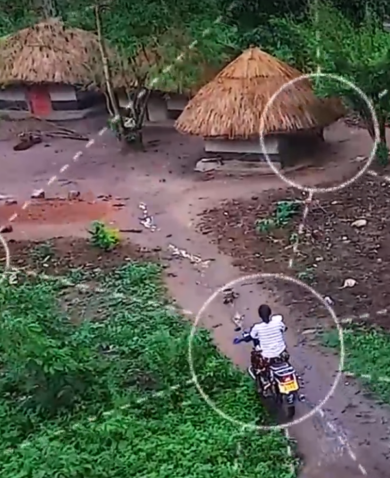
From Science to Scale — Enhancing Africa’s Incomes, Trade, and Health with Aflasafe®
October 19, 2017 | 3 Minute ReadThe Aflasafe® Technology Transfer and Commercialization project (ATTC) engages with the Africa's private sector to expand the adoption of Aflasafe. Chemonics Director Rob Henning and ATTC Managing Director Abdou Konlambigue discuss these innovative approaches.
Husaini Abdullahi, a farmer in the Abaya Dagwaji community of Jigawa, Nigeria, just took his first step towards an aflatoxin-safe future. His three-hectare farm is dedicated to groundnut intercropped with maize, both of which are highly susceptible to aflatoxin contamination. Aware of the dangers of aflatoxin, Husaini is now taking the measures to ensuring a safe and healthy crop yield, ready for market. As a contract farmer for Olam, an agro-processing giant, Husaini now has access to Aflasafe®. Olam recently purchased enough Aflasafe® to treat 3,500 hectares of groundnuts from its contract farmers.
Aflasafe®, an innocuous blue ball, is an all-natural deterrent to the toxic strains of aspergillus flavus, the fungi that produces aflatoxin. Aflasafe® uses a “thief to catch a thief” by using four benign strains of fungi to out-compete its toxic cousins. Aflasafe® was developed by the International Institute for Tropical Agriculture (IITA), the United States Department of Agriculture Agricultural Research Service (USDA-ARS), and other national partners, through more than 15 years of scientific research and testing in farmers’ fields. It is a tangible example of how public-sector research can translate into products that drive economic growth for Africa’s private sector and create prosperity for hundreds of millions of people.
Aflatoxin is a highly toxic, cancer-causing poison that contaminates food. In addition to causing 5 to 30 percent of the globe’s liver cancer, it weakens defenses against other diseases and stunts growth in children. Aflatoxin affects around one-quarter of the world’s total food supply, and it is even more common in warm, tropical countries. In addition to the health issues it can cause, it also has a major economic impact (costing up to 1.2 percent of national GDP, according to the Partnership for Aflatoxin Control in Africa), since many African harvests cannot be sold on international markets.
With financial support from the Bill & Melinda Gates Foundation and USAID, and technical support from Dalberg Global Development Advisors and Chemonics, IITA is taking an innovative new approach to bringing the benefits of Aflasafe® to Africa. These supporters form the strategic business development team behind the Aflasafe® Technology Transfer and Commercialization (ATTC) project. ATTC identifies key customer segments and companies that can drive a market-based strategy for Aflasafe® commercialization across the continent. With a potential market of 26 million hectares in 11 target countries across Africa, ATTC has a five-year target of 500,000 hectares as proof of concept. As of September 2017, IITA and its partners have sold and distributed more than 1,000 tons of Aflasafe® to farmers through public- and private-sector channels, covering a collective 100,000 hectares of maize and groundnuts. ATTC is taking a “light touch” approach to achieve these targets by leveraging the manufacturing and distribution muscle of the private sector in a bid to potentially reach millions of difficult-to-reach smallholder farmers, like Husaini.
In Senegal and The Gambia, ATTC and partner SODEFITEX, are already building momentum to expand the reach of Aflasafe®. To drive early uptake of Aflasafe® in Senegal and The Gambia, ATTC is first focusing on customer segments that have an economic incentive to use the product. These key customers include groundnut processors and exporters who could potentially earn 40 to 60 percent more revenue per ton by selling to the European Union market, which demands higher quality but is more profitable, instead of the less profitable Chinese market, notorious for lower quality product and higher rates of aflatoxin. Although the presence of aflatoxin is not the only criteria of quality, it is a binding constraint to accessing high-value markets. SODEFITEX is a Senegalese conglomerate and Aflasafe® pioneer which set out to address the previously limited distribution of the product between 2014 and 2016. Based on this instructive pilot, in September 2017, SODEFITEX and IITA signed a formal technology transfer and licensing agreement (TTLA) granting SODEFITEX the right to manufacture and distribute Aflasafe® in Senegal and The Gambia for five years. For these two countries, the product is registered and marketed as Aflasafe SN01™. The TTLA is the most powerful asset in ATTC’s commercialization toolkit, as it not only provides a business incentive for the private sector, but it also clearly defines the parameters and protocols for Aflasafe® commercialization. The TTLA attempts to strike a balance between profits for the private sector and public benefits, such as increased farm incomes and better health for farmers who often consume their own aflatoxin-contaminated farm produce.
With ATTC’s focus on private sector partners, IITA and its partners believe that Aflasafe® can go “from science to scale.” If ATTC can combine IITA’s decade-plus of research with the dynamism of Africa’s private sector, achieving and exceeding the target of 500,000 hectares treated annually is within reach. This is great news for the health and wealth of Husaini and his family, our private sector partners, and public health and economic growth across Africa. Beyond these direct benefits, ATTC’s approach will also serve as a template for IITA’s sister organizations in the Consultative Group for International Agricultural Research (CGIAR) family to translate decades of world-class research into tangible benefits for people, companies, and countries across the developing world.


























